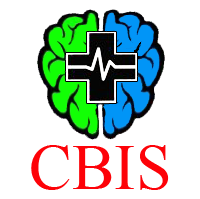Let's Connect You to Recovery from Brain InjuryThe Cowichan Brain Injury Society is a place where everyone can be themselves. We offer an innovative post-rehabilitation and community-based peer support initiative, called "Let's Connect". It provides a welcoming environment to connect, contribute and learn. It’s all about peers teaching peers. Together they are stronger. Peer supporters listen, provide emotional support, and inspire hope. The program emphasizes health and wellness while empowering brain injury survivors toward occupation or meaning after injury. The focus is on who we are as people – spirit, mind and body. Brain injury survivors come to build friendships, receive support, link up with valuable community resources, and explore life interests.
|
Our Mission: CBIS promotes understanding and rehabilitation to "ALL" affected with brain injury by providing education, support and services during their lifespan. |
Brain injuries make no appointments, nor does it matter what age you are, race, ethnicity, gender or care whether you have money. A brain injury will take anyone, anytime of the day or night. They happen suddenly, and within seconds life can change dramatically. You never know when it can be taken away from you permanently.
Primary causes of acquired brain injury are tumors, trauma, stroke, hypoxia/anoxia, alcohol related and other toxins, infection as well as degenerative diseases (Alzheimer’s, Parkinson’s, Multiple Sclerosis & Huntington’s). The brain controls everything we think, feel and do, as well as how we move, what we smell and what we see. Everything about us is controlled by our brain.
Studies show the brain is capable of changing through neuroplasticity; the natural ability of the brain to reorganize and rewire functions over to new, healthy parts of the brain after injury. New neurons require support from other neurons to survive. More practice and repetition helps to strengthen the connection. Neuroplasticity is nothing without meaningful engagement, focus on specific tasks, and your hard work. There is no quick fix, but what it does mean is that it doesn’t matter if it’s been two months or two decades since your brain injury which includes stroke: practice can spark new changes in your brain and improvements in function. Recovery is usually life-long requiring hard work and lots of commitment. It will not be easy and will probably be the hardest thing you will ever do.
CBIS is on a campaign to raise awareness and funds to support community-based brain injury programs for the Cowichan area. We want everyone to know there is life after brain injury. After all, if you don’t know a brain injury survivor yourself, then you probably know someone who loves one.
Primary causes of acquired brain injury are tumors, trauma, stroke, hypoxia/anoxia, alcohol related and other toxins, infection as well as degenerative diseases (Alzheimer’s, Parkinson’s, Multiple Sclerosis & Huntington’s). The brain controls everything we think, feel and do, as well as how we move, what we smell and what we see. Everything about us is controlled by our brain.
Studies show the brain is capable of changing through neuroplasticity; the natural ability of the brain to reorganize and rewire functions over to new, healthy parts of the brain after injury. New neurons require support from other neurons to survive. More practice and repetition helps to strengthen the connection. Neuroplasticity is nothing without meaningful engagement, focus on specific tasks, and your hard work. There is no quick fix, but what it does mean is that it doesn’t matter if it’s been two months or two decades since your brain injury which includes stroke: practice can spark new changes in your brain and improvements in function. Recovery is usually life-long requiring hard work and lots of commitment. It will not be easy and will probably be the hardest thing you will ever do.
CBIS is on a campaign to raise awareness and funds to support community-based brain injury programs for the Cowichan area. We want everyone to know there is life after brain injury. After all, if you don’t know a brain injury survivor yourself, then you probably know someone who loves one.
